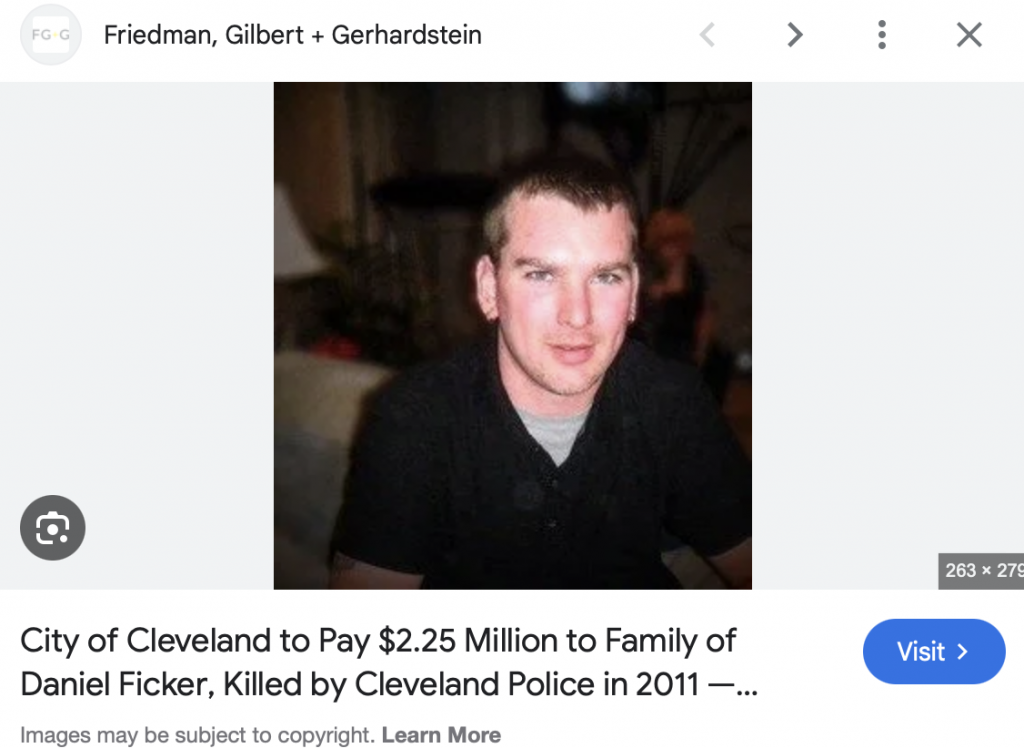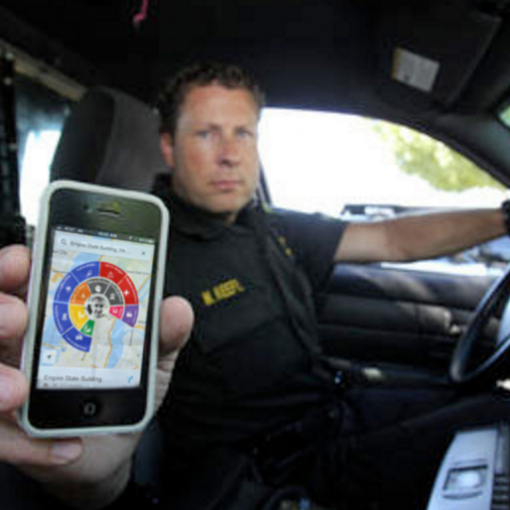
In the ongoing national debate about police misconduct, stories often focus on Black or brown victims — and rightly so, given the systemic racism and disproportionate harm many endure. But sometimes the narrative misses another point: police violence does not spare white lives either. To build broader coalitions and to shift minds, we must also acknowledge the stories of white victims.
One particularly telling case is that of Dan (Daniel) Ficker, a 27-year-old white man, shot and killed by Cleveland police in 2011 — a case which ultimately resulted in a $2.25 million settlement from the City of Cleveland. Cleveland Scene+3Ideastream Public Media+3https://www.cleveland19.com+3
A Brief Summary of What Happened
- On July 3, 2011, Dan Ficker and his fiancée, Tiffany Urbach, attended a party in Cleveland at the home of Tiffany’s cousin, Kimberly Mindek. LexisNexis+2Ideastream Public Media+2
- During or after the party, some jewelry was reported missing from Kimberly’s home, and suspicion fell on Ficker. His name was implicated — though, as the records later show, no proof ever substantiated that he had taken anything. Ideastream Public Media+3https://www.cleveland19.com+3LexisNexis+3
- David Mindek (Kimberly’s husband and a Cleveland police officer) was off duty. He enlisted the help of Officer Matthew Craska (then on duty) to confront Ficker at his home in Parma, Ohio — outside of Cleveland’s jurisdiction. https://www.cleveland19.com+3LexisNexis+3Ideastream Public Media+3
- Craska left his assigned area, picked up Mindek, and together they went to Ficker’s residence. As Ficker arrived home, a confrontation erupted. Craska tased, beat, wrestled, and then shot Ficker in his chest. Ficker died from his injuries. LexisNexis+5LexisNexis+5Ideastream Public Media+5
- Grand juries declined to indict Craska. Mindek was charged with dereliction of duty but was later acquitted. Internal discipline never meaningfully held the officers accountable. https://www.cleveland19.com+3News 5 Cleveland WEWS+3LexisNexis+3
- The Ficker family filed a federal civil rights lawsuit (under § 1983) and fought for years. In January 2017, just before trial, the City of Cleveland agreed to settle for $2.25 million. https://www.cleveland19.com+3Ideastream Public Media+3LexisNexis+3
- As part of the settlement, the city also agreed to a policy change: when officers venture into another jurisdiction, they must be accompanied by a supervisor. https://www.cleveland19.com+2Ideastream Public Media+2
What Made This Case Especially Problematic
1. Overreach & Jurisdiction Violations
Craska and Mindek acted outside their jurisdiction. Craska left his patrol assignment, and they entered Parma (another municipality) without proper authority or mutual-aid agreements. LexisNexis+1 The expert report for plaintiff concluded those actions violated accepted law enforcement practices. LexisNexis
2. Inadequate Accountability
Despite a fatal outcome, neither officer was criminally charged with homicide (grand jury declined) and internal discipline was delayed or never applied. Ficker’s mother has publicly stated the police “swept it under the rug.” News 5 Cleveland WEWS The very officers involved walked away with no meaningful personal consequences. News 5 Cleveland WEWS+1
3. A Life Was Cut Short — Unarmed
Ficker was unarmed. He was returning home when confronted. The use of lethal force was disproportionate to any threat he posed. LexisNexis+2Ideastream Public Media+2
4. A Settlement, Not an Admission
As with many civil suits involving police misconduct, the city settled without formally admitting to wrongdoing — meaning no institutional apology, nor formal finding of guilt. LexisNexis+1
Why The White Perspective Matters
- Breaking the Changed Narrative
Many white readers assume police misconduct is a problem that affects others — particularly Black communities. The Ficker case forces a hard confrontation: even white citizens exercising everyday rights can become victims. - Building Empathy & Common Ground
When white readers recognize a white victim — that this is not about identity alone but about justice, due process, and accountability — they may begin to see the broader system more clearly. - Undermining Defensive Postures
Some resist acknowledging police abuse because they fear it suggests “all cops are bad.” The Ficker story is not about blanket condemnation — it’s about calling out specific misconduct, misuses of power, and institutional failures. - Strengthening the Call for Reform
If we only talk about misconduct when the victim is a racial minority, some will dismiss abuse as isolated or “those cases.” Demonstrating that abuse is systemic — that white individuals are also vulnerable — bolsters the argument for broader checks, oversight, and institutional change.
Questions We Should Ask
- Why was Craska cleared by a grand jury when the sequence of events seems deeply suspicious?
- Why did internal discipline stall and never catch up to the gravity of the outcome?
- How often have officers acted outside jurisdiction or used lethal force improperly, but the stories never made headlines?
- What policies or oversight mechanisms might prevent such tragedies in the future — and how would they be enforced?
- How do we shift the narrative so that “police accountability” is not perceived as a partisan or racial issue — but a civic one?
A Call to White Audiences: Listen, Question, Demand
If you’re reading this and thinking, “Well, that could never happen to me,” I invite you to reconsider. Law enforcement carries massive power with limited accountability. To believe you are immune does more than lull you into complacency — it isolates you from a broader movement for basic fairness and justice.
We must strive to:
- Seek facts — push for transparency in investigations and reports.
- Support independent oversight — civilian review boards, unbaised prosecutors, outside monitors.
- Hold authorities accountable — demand that misconduct not be quietly settled but addressed through reform.
- Talk about these cases — even when the victim is white — so that the conversation around police abuse becomes universal, not narrow.
Dan Ficker’s name may not be widely known. But his life mattered. His case should matter to all of us — not because he was white, but because his killing exposes how broken systems can betray public trust, regardless of race.




